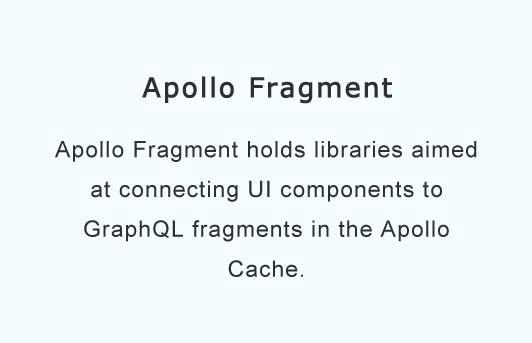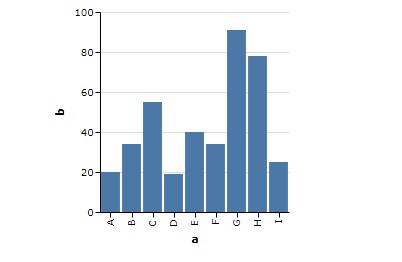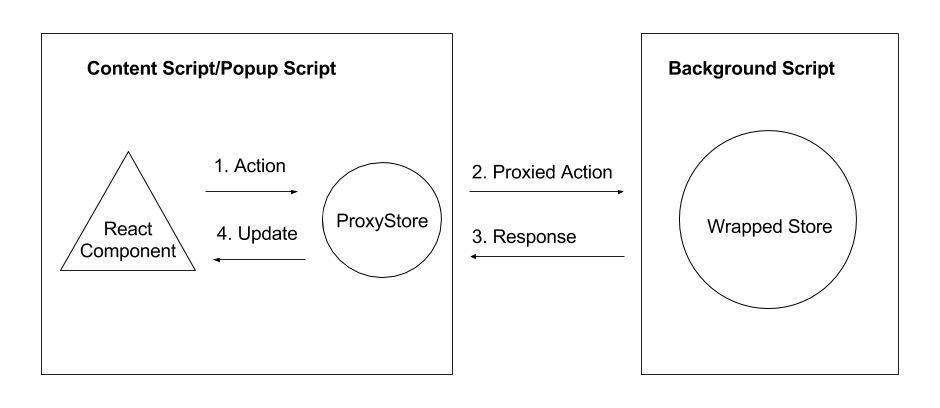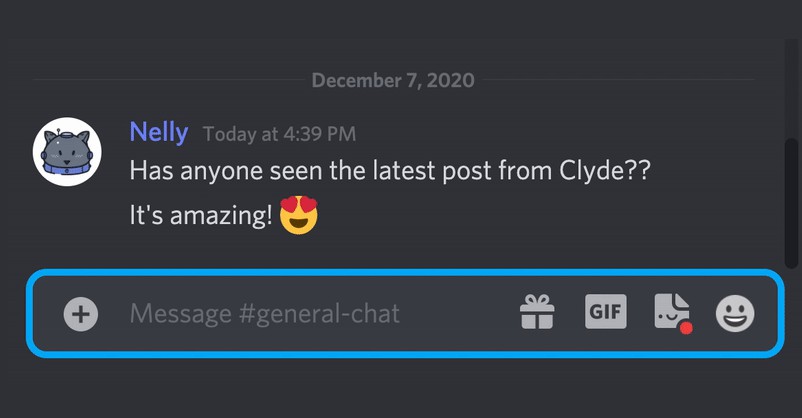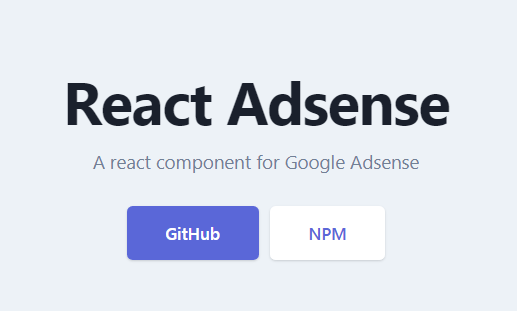Apollo Fragment
Apollo Fragment holds libraries aimed at connecting UI components to GraphQL
fragments in the Apollo Cache.
apollo-link-state-fragment exposes a cacheRedirect and withClientState
configuration for querying fragments from the cache.
apollo-fragment-react exposes an ApolloFragment query component that will
connect your component to a fragment in cache and automatically watch all
changes to it.
apollo-fragment-vue exposes an ApolloFragment Vue component that will
connect your component to a fragment in cache and automatically watch all
changes to it.
Installation
It is simple to add to your current apollo client setup:
# installing cache addons and react package
yarn add apollo-link-state-fragment apollo-fragment-react -S
or
# installing cache addons and react package
yarn add apollo-link-state-fragment apollo-fragment-vue -S
Usage
To get started you will want to add the fragmentCacheRedirect to your
InMemoryCache cacheRedirect map.
import { InMemoryCache } from "apollo-cache-inmemory";
import { fragmentCacheRedirect } from "apollo-link-state-fragment";
const cache = new InMemoryCache({
cacheRedirects: {
Query: {
...fragmentCacheRedirect()
}
}
});
Next, import the fragmentLinkState and pass in the cache.
import { ApolloClient } from "apollo-client";
import { ApolloLink } from "apollo-link";
import { InMemoryCache } from "apollo-cache-inmemory";
import {
fragmentCacheRedirect,
fragmentLinkState
} from "apollo-link-state-fragment";
const cache = new InMemoryCache({
cacheRedirects: {
Query: {
...fragmentCacheRedirect()
}
}
});
const client = new ApolloClient({
link: ApolloLink.from([fragmentLinkState(cache), new HttpLink()]),
cache: new InMemoryCache()
});
Once you have your client setup to make these kind of queries against the cache,
we can now use the View layer integrations: All we have to do is pass the id of
the fragment you're looking for, and the selection set in a named fragment.
React
import { ApolloFragment } from "apollo-fragment-react";
const fragment = `
fragment fragmentFields on Person {
idea
name
__typename
}
`;
function App() {
return (
<section>
<ApolloFragment id="1" fragment={fragment}>
{({ data }) => {
return (
<section>
<p>
This component is "watching" a fragment in the cache, it will
render the persons name once the data enters
</p>
<p>{data && `Person Name: ${data.name || ""}`}</p>
</section>
);
}}
</ApolloFragment>
<button
onClick={function() {
client.query({
query: gql`
query peeps {
people {
id
name
}
}
`
});
}}
>
Click to load people
</button>
</section>
);
}
Vue
<template>
<div>
<p>This list is created by calling a GraphQL Fragment with ApolloFragment</p>
<ApolloFragment
:fragment="fragment"
:id="id"
>
<template slot-scope="{ result: { loading, error, data } }">
<div v-if="loading" class="loading apollo">Loading...</div>
<!-- Error -->
<div v-else-if="error" class="error apollo">An error occured</div>
<!-- Result -->
<div v-else-if="data" class="result apollo">
<p>ID: {{data.id}} - {{data.name}}</p>
</div>
<!-- No result -->
<div v-else class="no-result apollo">
<p>No result :(</p>
</div>
</template>
</ApolloFragment>
</div>
</template>
<script>
const fragment = `
fragment fragmentFields on Person {
idea
name
__typename
}
`;
export default {
name: "Example",
data() {
return {
id: "1",
fragment,
};
}
};
</script>
In our examples above, We have used the ApolloFragment query component to bind the current value of the fragment in cache. When a user clicks to load a list of people, our component subscribed to a user with id "1", will rerender and display the person's name.
